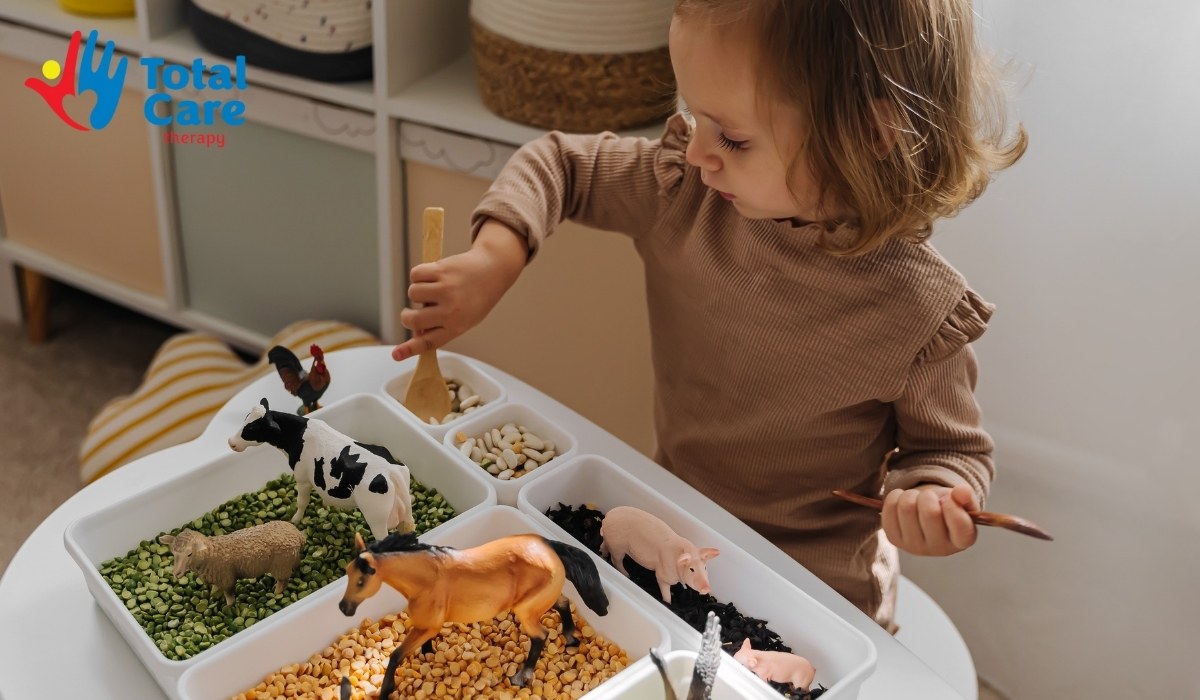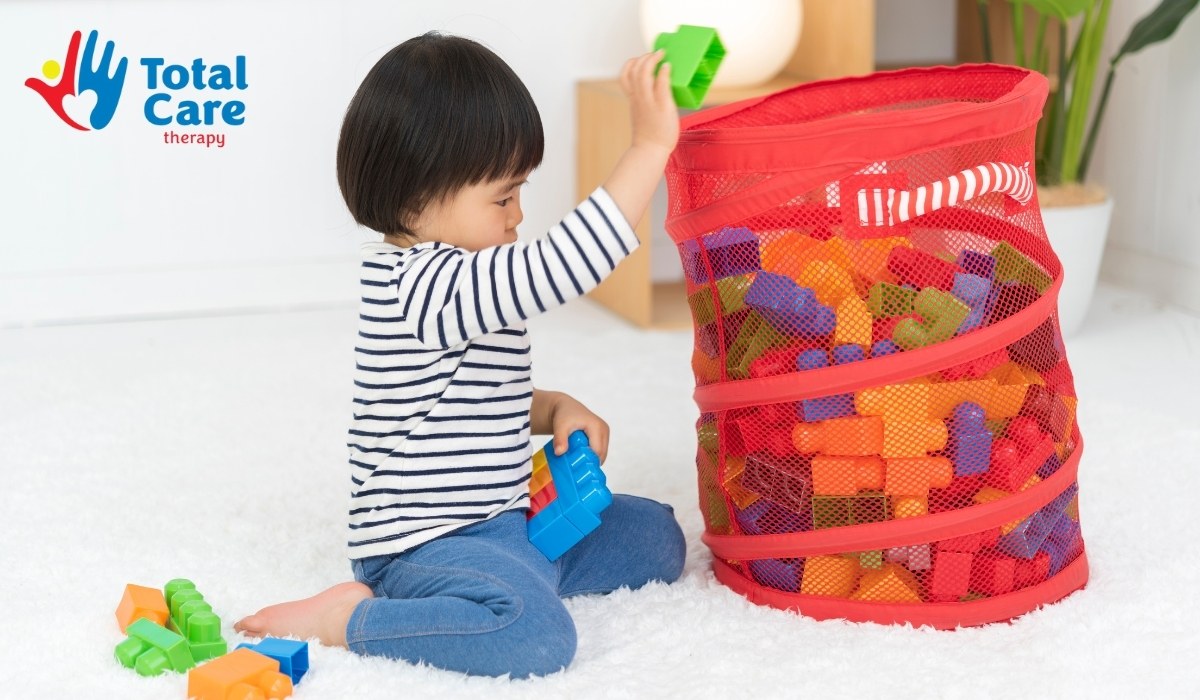ABA Therapy Activities: 12 Fun Ideas for Kids
Discover 12 ABA therapy activities for kids that make learning fun, boost skills, and encourage positive behaviors every day.
ABA Therapy Activities: 12 Fun Ideas for Kids
Key Points:
- ABA therapy activities can make learning engaging while helping children develop essential social, communication, and life skills.
- Structured play, visual supports, and reinforcement strategies form the foundation of effective ABA activities.
- Parents can incorporate these activities at home, complementing professional therapy sessions to encourage positive behaviors every day.
When it comes to helping children develop essential skills, Applied Behavior Analysis (ABA) therapy has proven to be both effective and adaptable. ABA therapy isn’t just about clinical exercises—it can be interactive, engaging, and tailored to your child’s interests.
The following list of 12 ABA therapy activities is designed with parents in mind. Each idea focuses on fun, skill-building, and reinforcing positive behaviors. Whether your child is just starting therapy or already familiar with ABA techniques, these activities provide concrete ways to practice essential skills at home or in structured sessions.
Matching and Sorting Games
Matching and sorting are foundational ABA activities that help children improve cognitive skills, attention, and categorization abilities.
- Object Matching: Use everyday items like utensils, toys, or clothing. Ask your child to pair identical objects or sort by color, size, or shape. This activity strengthens visual discrimination and attention to detail.
- Picture Matching: Print simple images of animals, food, or objects. Ask your child to match the cards or place them on a corresponding board. Reinforce correct matches with praise or small rewards to build motivation.
- Sorting by Categories: Introduce categories such as colors, shapes, or types of animals. Encourage your child to sort items into the correct groups. This activity fosters problem-solving and logical thinking while keeping it playful.
Matching and sorting can be adapted for different skill levels, making them perfect for daily practice and repetition, which ABA emphasizes.

Sensory Play Activities
Many children benefit from sensory-based ABA activities to improve attention, fine motor skills, and regulation. Sensory play also helps children engage with materials in structured ways.
- Sensory Bins: Fill a bin with rice, beans, or water beads. Hide small objects and have your child find and identify them. This enhances focus, tactile exploration, and following instructions.
- Playdough Fun: Encourage rolling, cutting, and shaping. You can integrate letters, numbers, or shapes to reinforce learning while building fine motor skills.
- Textured Crafts: Provide materials like sandpaper, felt, or foam. Ask your child to create patterns or sort items based on texture. Pair this with verbal labeling to improve language skills.
These activities give children safe, engaging ways to explore the world while practicing skills they’ll use in everyday life.
Turn-Taking Games
Turn-taking is essential for social skills development. ABA activities that encourage waiting, patience, and sharing are perfect for practicing these behaviors.
- Board Games: Simple games like Candy Land or matching card games help children learn to wait for their turn while practicing attention and social interaction.
- Ball Games: Roll a ball back and forth, counting each turn aloud. You can add simple rules like clapping before passing to reinforce sequencing and anticipation.
- Snack Sharing: Involve your child in sharing snacks or treats during structured mealtime routines, using ABA principles like prompting and reinforcement for taking turns.
These activities not only teach patience and self-control but also promote cooperation and positive social interactions.

Functional Life Skills Practice
ABA therapy often includes teaching functional skills to foster independence. These can be incorporated into everyday routines with clear, structured steps.
- Dressing Skills: Break tasks like putting on socks or jackets into small steps. Reinforce each successful step with praise or a token reward.
- Cleaning Up: Turn cleanup into a game—time your child or make it a challenge to put toys in bins. This strengthens responsibility, sequencing, and motor skills.
- Meal Prep: Simple activities like pouring cereal, stirring, or setting the table encourage independence and following directions.
By embedding ABA techniques like prompting and reinforcement, these practical activities help children develop essential life skills in a supportive way.
Communication and Language Activities
ABA therapy is highly effective in building communication skills, whether verbal or nonverbal.
- Picture Exchange Communication System (PECS): Teach your child to request items using picture cards. This strengthens functional communication and reduces frustration.
- Storytelling and Narration: Encourage your child to describe actions during play or narrate simple stories. Reinforce attempts at new words or phrases.
- Labeling Objects: Use everyday items to practice labeling. Pair each label with reinforcement when your child identifies or repeats the word.
Consistent practice through these activities can increase language comprehension, expressive speech, and overall communication confidence.

Movement and Gross Motor Games
Physical activity is not only fun but also supports attention, coordination, and behavioral regulation.
- Obstacle Courses: Set up a safe course with cushions, tunnels, and chairs. Give verbal instructions to navigate the course, promoting listening and sequencing.
- Dance and Freeze: Play music and have your child dance freely, then freeze when the music stops. This teaches impulse control and body awareness.
- Animal Walks: Pretend to walk like a crab, bear, or frog. This encourages imagination, movement, and gross motor skills.
Integrating movement into ABA therapy makes skill-building dynamic and enjoyable.
Puzzles and Problem-Solving
Puzzles are excellent for improving cognitive skills, patience, and attention to detail.
- Jigsaw Puzzles: Start with larger pieces and simple images, gradually increasing complexity. Reinforce completion and correct placements.
- Shape Sorters: Encourage matching shapes to corresponding holes, fostering spatial reasoning and problem-solving.
- Pattern Games: Create simple sequences with beads, blocks, or stickers and have your child replicate them, reinforcing sequencing and memory.
These activities promote independent thinking and perseverance, which are crucial life skills.
Social Play Scenarios
ABA therapy emphasizes real-world social learning, which parents can practice at home through guided play.
- Role-Playing: Pretend to be at a grocery store or restaurant. Practice greetings, asking for items, and saying thank you.
- Emotion Cards: Use cards depicting different facial expressions. Ask your child to identify and mimic them, discussing what feelings they represent.
- Peer Play: Structured group activities with siblings or friends help children practice sharing, cooperation, and conversational skills.
By simulating social situations in a controlled setting, children gain confidence to navigate interactions outside of therapy sessions.
Visual Schedules and Task Completion
Visual schedules help children understand routines and expectations, reducing anxiety and improving independence.
- Daily Charts: Include morning, afternoon, and bedtime routines with pictures representing each task.
- Step-by-Step Instructions: Break complex tasks like handwashing into pictures for each step.
- Reward Boards: Display stars or tokens for completed tasks, providing tangible reinforcement for effort.
Using visuals consistently can increase adherence to routines and reduce challenging behaviors stemming from uncertainty.

Fine Motor Skill Activities
Strengthening fine motor skills supports writing, self-care, and play.
- Beading and Threading: Use beads or pasta to create necklaces or patterns, reinforcing coordination and concentration.
- Sticker Placement: Encourage peeling and sticking on specific areas, improving dexterity and attention.
- Cutting Practice: Use safety scissors to cut along lines or shapes, enhancing hand-eye coordination.
ABA principles like prompting and reinforcement make these activities more structured and motivating for children.
Reinforcement-Based Play
ABA therapy heavily relies on positive reinforcement to shape behaviors. Turning play into reinforcement-focused activities helps children connect effort with rewards.
- Token Systems: Earn tokens for completing tasks or following directions, redeemable for preferred items or activities.
- Choice-Making Games: Offer multiple options for play or snacks, reinforcing decision-making and autonomy.
- Immediate Praise: Recognize achievements in real-time to strengthen motivation and engagement.
When reinforcement is meaningful, children are more likely to repeat positive behaviors, making learning both effective and enjoyable.

Storytime and Literacy Activities
Reading and literacy exercises support language, attention, and social understanding.
- Interactive Books: Pause during reading to ask questions or have your child predict outcomes.
- Labeling Pages: Point to objects in the book and have your child name them, pairing words with images.
- Story Sequencing: Use cards or pictures from the book to retell the story, reinforcing comprehension and memory skills.
Literacy activities, when combined with ABA strategies, help children develop a love for reading while building critical skills.
Wrapping Up
ABA therapy activities aren’t just tasks—they’re opportunities to help your child grow, learn, and gain confidence. By incorporating structured play, sensory experiences, communication exercises, and reinforcement strategies, parents can extend therapy benefits into daily life.
At Total Care ABA, we tailor ABA therapy programs to each child’s strengths, interests, and needs. Our approach combines evidence-based techniques with fun, engaging activities that make skill-building feel natural. Families across New Mexico, Tennessee, Indiana, Georgia, Arizona, North Carolina, Maine, and Utah have found that consistent ABA therapy helps children thrive socially, emotionally, and academically.
If you’re looking for supportive ABA therapy in New Mexico, Utah, Tennessee, Georgia, Indiana, Maine, Arizona, or North Carolina, reach out to us to start building skills through play and structured learning today.


.svg)
.svg)







